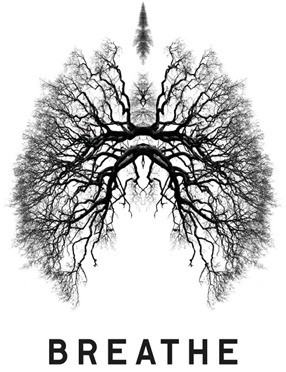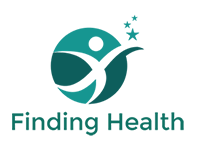Doesn’t breathing happen naturally ? We start life with an inhalation and end on an exhalation without even thinking about it – so why pay attention to how you breathe at all ? The Eastern philosophers knew that how you breathe can have a deep influence on your physical and mental wellbeing, and Western science has also underlined this importance.
Sadly, sometimes we only notice our breath in relation to an unusual event “I held my breath” “I caught my breath” and when we are stressed we realise we are taking shallow nervous breaths. When we are calm and relaxed the breath becomes deeper and slower. But let’s be honest, it is unusual that we pay much attention to the one thing that keeps us alive.
‘Normal’ breathing for an adult is 16-18 breaths per minute, slower when asleep and more when you exercise. Do the sums and this is around 26,000 breaths daily and a whopping 8 MILLION-plus a year. With these numbers, it’s easy to see that not breathing well wastes bodily effort and restricts all the good things that a full breath allows.
Modern life and its pressures can encourage the development of disruptive breathing patterns – maybe because of illness such as asthma or commonly, habitual emotional or physical stress. When we are tense or in a stressful situation, the breath can become short or shallow and concentrated in the upper chest. Over time, this can result in an ‘upper rib breathing’ pattern which means that you don’t use the lungs and breathing mechanism fully. The neck and shoulder muscles shorten and tighten and the ribs, upper back and diaphragm fail to move to their full ranges – over time this breathing pattern becomes a bad habit.
Science knows that how we breathe has widespread effects on the body and mind – and numerous studies have shown that breath training can influence blood pressure, stress levels, asthma and feelings of well-being. From work to home to sport, breathing well can improve how you function. The motion of a full breath affects the whole body, from the cardiovascular to the digestive systems and the chemical effects of the breath influence internal chemistry and the neurological system. The oxygen we breathe powers the very fire of life at a cellular level, so it makes sense that we need to breathe well.
The good news is that you can train the breath to reverse entrenched patterns. It takes a little knowledge and practice, but once you get started the benefits become visible quickly, and you can feel calmer, more alert and have better health. Seek out an experienced teacher – often yoga classes or meditation centres are a good place to start – or try one of the excellent books below.
The first step in any change is to work out where you are starting from. Become aware of any breathing habits you have accumulated: What happens to your breath in a stressful situation ? Do you hold it or take quick shallow breaths ? If you know someone who is very calm to be around – have a look at how often and how they breathe. The next time you are out and about in the fresh year, pay attention to how it feels to fill your lungs with clean, fresh air.
Try this very short exercise to experience how focusing on the breath can relax the body and mnd:
- Allocate 5 minutes and sit somewhere quiet where you won’t be disturbed
- Close your eyes if you wish
- Place one hand on your upper chest and one on your belly
- Listen as you breathe slowly and fully. In through the nose, right down until the belly swells. Out through the mouth with a big sigh “Haaaaaa” as the belly falls, all the way to the end of the breath.
- Repeat 5 times and then breathe normally. Rest for a few minutes.
- Notice how the tension seeps out with the exhale.
- Open your eyes and take a few moments before jumping back into life
You can use this technique at any time to release tension. Use it in the office before a big meeting (don’t need to make a noise!) or standing in the kitchen if the kids are playing up. Try it before you respond to a stressful situation with your normal reaction…
Remember, your breath is always there to help you, but sometimes you have to practice finding it !
Anji is a Registered Osteopath and Yoga Teacher, offering 1:1 yoga lessons and osteopathic treatment in Ealing and Richmond.
If you are interested in finding out more, contact me or try these super books as an introduction.
- The Breathing Book, Donna Farhi, 1996, Owl Books
- The Yoga of Breath, Richard Rosen, 2002, Shambala Publications


